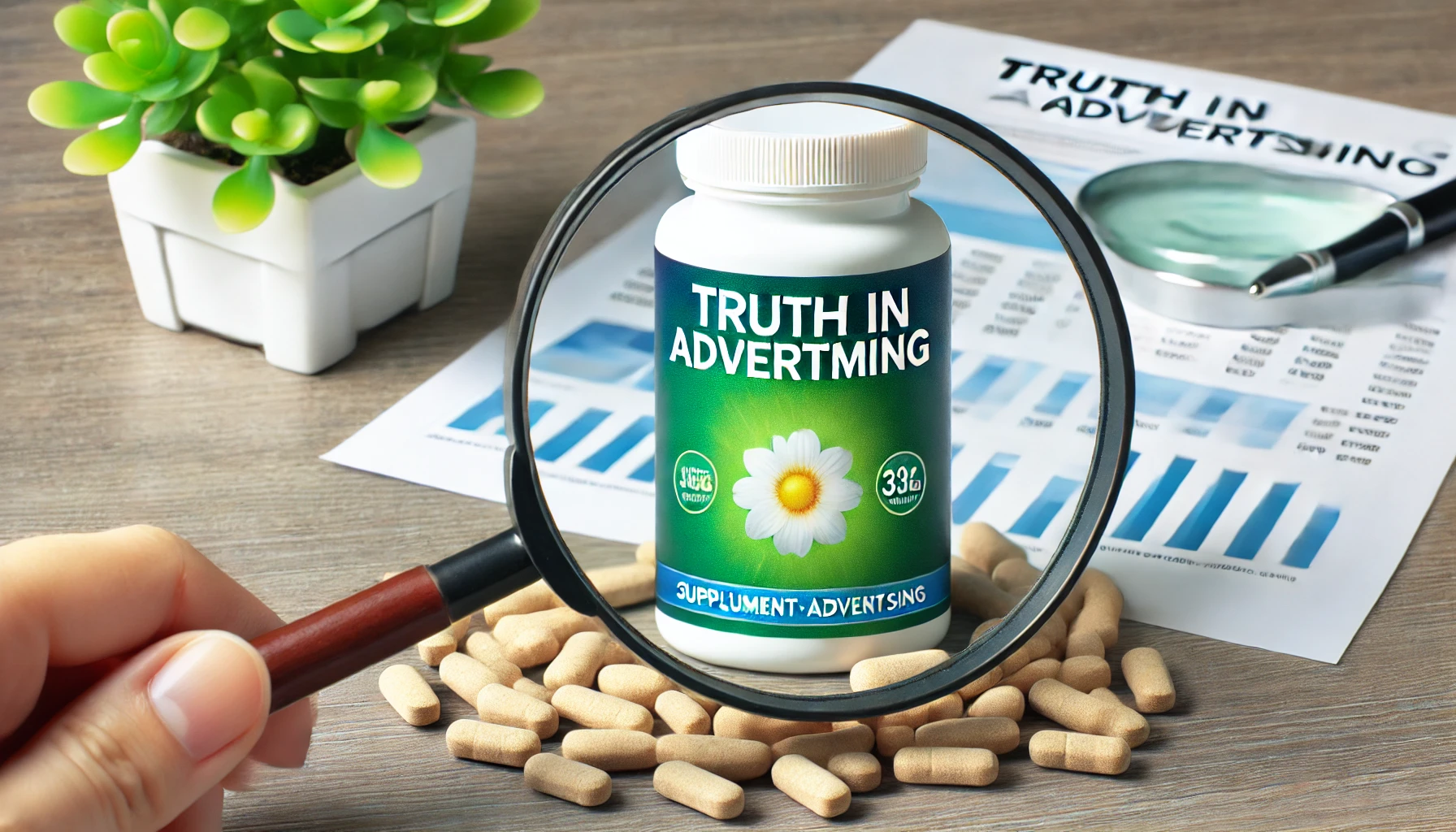The Peptiva Lawsuit has captured significant attention due to allegations surrounding the marketing and claims associated with this popular dietary supplement. Consumers and legal experts alike are questioning whether the brand has adhered to regulatory standards and ethical practices.
Central to the Peptiva Lawsuit are claims about misleading advertisements and product efficacy. These allegations have prompted legal scrutiny, raising important questions about transparency and accountability in the supplement industry.
As the Peptiva Lawsuit unfolds, it has highlighted the broader challenges facing businesses in maintaining consumer trust. The outcome of this case could set a precedent for how supplement companies address similar issues in the future.
What is the Peptiva Lawsuit About?
The Peptiva Lawsuit revolves around allegations that the marketing and claims surrounding Peptiva dietary supplements misled consumers. These claims suggest that the brand exaggerated the product’s efficacy and benefits without sufficient scientific backing.
Peptiva is widely marketed as a supplement that improves gut health and supports sleep. The lawsuit questions whether these claims are substantiated or if they misrepresent the product’s actual performance.
Consumer dissatisfaction played a key role in the initiation of the lawsuit. Many consumers claimed they did not experience the promised results, raising concerns about false advertising and deceptive business practices.
This lawsuit highlights the broader issue of accountability within the dietary supplement industry. It underscores the importance of ensuring that marketing claims are honest and backed by credible evidence.
Key Allegations in the Case
The Peptiva Lawsuit outlines several critical allegations, including claims of false advertising. The brand allegedly used misleading statements in its marketing materials to attract customers.
One significant allegation involves the absence of scientific evidence supporting the supplement’s purported benefits. The lawsuit claims that Peptiva overstated its effectiveness in promoting gut health and enhancing sleep quality.
- Allegation: Misleading advertisements overstating benefits.
- Claim: Lack of peer-reviewed studies to validate product efficacy.
- Impact: Erosion of consumer trust and potential regulatory violations.
Consumers also alleged that the company’s refund policy was not honored as advertised. These grievances compounded dissatisfaction and fueled the legal action.
The table below summarizes the primary allegations:
| Allegation | Impact on Consumers | Legal Implications |
| False advertising | Misled purchases | Violation of advertising laws |
| Lack of scientific evidence | Questionable product efficacy | Consumer deception |
| Refund policy issues | Financial loss for customers | Breach of consumer rights |
Legal Aspects of the Peptiva Lawsuit
The Peptiva Lawsuit raises significant legal concerns, particularly regarding consumer protection laws and advertising standards. The case is centered around whether Peptiva’s marketing violated laws related to deceptive trade practices.
A critical legal question is whether Peptiva’s claims constitute “puffery” or outright deception. Puffery, often exaggerated marketing language, is generally allowed. However, outright false claims that mislead consumers are not.
The lawsuit also focuses on the Federal Trade Commission’s (FTC) guidelines for advertising. If Peptiva failed to provide adequate evidence for its claims, it could be found in violation of these federal rules.
Additionally, legal experts are closely watching this case for its implications on the supplement industry. The outcome could influence stricter regulations and compliance requirements for similar products.
Another legal aspect under scrutiny is Peptiva’s handling of consumer complaints and refunds. Failing to address these grievances appropriately could be seen as a breach of consumer rights.
Impact of the Peptiva Lawsuit on Consumer Trust
The Peptiva Lawsuit has had a notable impact on consumer trust in the brand and, more broadly, in the dietary supplement industry. Misleading claims, if proven, can damage a company’s reputation and erode public confidence.
For consumers, this lawsuit has reinforced the importance of skepticism when evaluating health-related products. It highlights the need to verify claims through independent reviews and scientific studies.
The case also demonstrates the ripple effects of consumer distrust. Other brands in the supplement market may face increased scrutiny as a result of the allegations against Peptiva.
While the company has denied the claims, the lawsuit has led many customers to question its credibility. Trust, once lost, is challenging to rebuild, especially in the health and wellness sector.
This situation underscores the importance of ethical marketing and transparent communication with consumers. Companies must ensure their claims are accurate and evidence-based to maintain long-term trust.
Timeline of Events Surrounding the Peptiva Lawsuit
The timeline of the Peptiva Lawsuit provides a detailed look at the key events that led to its development:
Initial Complaints (Year X): Consumer dissatisfaction began to surface, with many claiming the product did not deliver the advertised benefits.
Legal Filing (Year Y): The lawsuit was formally filed, citing false advertising, lack of scientific evidence, and refund issues.
Company Response (Year Y): Peptiva issued a statement denying the allegations and asserting the validity of its claims.
Ongoing Investigation (Year Z): Legal teams began collecting evidence, including customer testimonials and marketing materials, to support the case.
Current Status (Year Z): The lawsuit is ongoing, with potential outcomes ranging from settlements to regulatory changes.
This sequence of events highlights the complex nature of legal disputes in the supplement industry and emphasizes the importance of consumer advocacy in holding companies accountable.
Stakeholder Reactions to the Case
The Peptiva Lawsuit has drawn mixed reactions from various stakeholders, including customers, industry experts, and regulators. While consumers have largely expressed frustration over the alleged false claims, others in the industry have shown concern about the potential fallout.
Consumer advocacy groups have welcomed the lawsuit, viewing it as a step toward greater accountability in the supplement industry. They believe this case could set a precedent for addressing misleading marketing tactics.
Industry competitors, on the other hand, are closely watching the developments. Some have taken this as an opportunity to emphasize their own compliance with regulatory standards to reassure their customer base.
Legal experts have debated the strength of the case, analyzing the evidence presented and its alignment with consumer protection laws. Their insights suggest that the outcome could significantly influence advertising practices across similar markets.
Additionally, regulatory bodies have not directly intervened yet, but the lawsuit might encourage tighter oversight of health-related product claims in the future.
Marketing Practices Examined in the Peptiva Lawsuit
The Peptiva Lawsuit primarily challenges the brand’s marketing strategies, focusing on whether the claims made in their advertising align with reality. The lawsuit alleges that the company exaggerated the benefits of its product without substantial proof.
A key issue is the use of unverified scientific claims. Peptiva’s marketing materials reportedly highlighted benefits such as improved gut health and sleep quality, but the lawsuit argues that these claims lack credible evidence.
- Disputed Practices:
- Claims of immediate results without clinical validation.
- Use of ambiguous terms like “clinically proven” without accessible studies.
The table below highlights specific marketing issues and their potential implications:
| Marketing Claim | Allegation in Lawsuit | Consumer Impact |
| Improved gut health | No clinical backing cited | Misdirection of trust |
| Enhanced sleep quality | Exaggerated claims | Potential disappointment |
| Use of “clinically proven” | Lack of publicly available data | Deceptive marketing |
This examination of marketing practices emphasizes the need for transparent communication in advertising to maintain consumer trust and legal compliance.
Consumer Complaints That Led to the Peptiva Lawsuit
The Peptiva Lawsuit originated from numerous consumer complaints, many of which focused on unfulfilled product promises. Customers reported that the supplement did not deliver the benefits it claimed, leading to widespread dissatisfaction.
Refund-related issues were also a significant source of frustration. Consumers alleged that Peptiva failed to honor its refund policy, leaving them feeling cheated and financially burdened.
These complaints were amplified on various platforms, including review sites and social media, where users shared their negative experiences. The growing number of grievances eventually caught the attention of legal professionals.
Some consumers claimed to have experienced side effects that were not mentioned in the product’s promotional materials.
The culmination of these complaints highlights the importance of addressing consumer concerns promptly and thoroughly to avoid legal and reputational consequences.
Possible Outcomes of the Peptiva Lawsuit
The Peptiva Lawsuit presents several potential outcomes, each with unique implications for the company, its customers, and the broader supplement industry.
One possible result is a financial settlement. If Peptiva opts to settle the case, it could provide compensation to affected consumers and avoid prolonged legal proceedings.
Another outcome could involve stricter regulatory oversight of Peptiva’s advertising practices. This might lead to mandatory changes in how the product is marketed to ensure compliance with consumer protection laws.
- Possible Outcomes:
- Financial settlement to consumers.
- Stricter regulations for Peptiva’s advertising.
- Dismissal of the case if the evidence is insufficient.
A less favorable outcome for Peptiva could include reputational damage, particularly if the court rules against the company. This may result in a loss of consumer trust and a decline in sales.
Alternatively, if Peptiva successfully defends itself, it could reinforce the brand’s credibility. However, the lawsuit has already raised concerns that may continue to impact public perception.
This case underscores the importance of ethical marketing and compliance with regulatory standards to avoid legal disputes and maintain consumer confidence.
Broader Industry Implications of the Case
The Peptiva Lawsuit extends beyond the company itself, shedding light on widespread issues within the dietary supplement industry. It highlights how exaggerated claims and insufficient scientific validation can lead to legal troubles and diminished consumer trust.
Regulators may use this case as a precedent to implement stricter guidelines for marketing and advertising health products. Such changes could compel businesses to ensure their claims are backed by credible scientific evidence.
Competitors in the industry are likely to reassess their own marketing practices to avoid similar legal challenges. This case serves as a wake-up call, emphasizing the risks of non-compliance with advertising regulations.
Consumers may also become more skeptical of product claims, prompting brands to adopt more transparent and evidence-based marketing strategies. This shift could ultimately lead to a more trustworthy marketplace for health products.
The lawsuit underscores the necessity for the industry to strike a balance between persuasive marketing and ethical responsibility, setting a standard for future business practices.
Lessons Businesses Can Learn from the Peptiva Lawsuit
The Peptiva Lawsuit provides several important lessons for businesses, particularly those in highly regulated industries like health and wellness.
First, companies must prioritize transparency in their marketing. Any claims about a product’s efficacy should be supported by credible and accessible scientific evidence to avoid misleading consumers.
Second, maintaining a robust customer service process is critical. Ensuring that refund policies are honored and addressing complaints promptly can prevent dissatisfaction from escalating into legal action.
- Key Lessons:
- Avoid making unverified claims in advertising.
- Establish clear and enforceable customer policies.
- Monitor consumer feedback to identify and address potential issues early.
Another crucial takeaway is the importance of complying with regulatory standards. Companies should regularly audit their marketing materials to ensure alignment with laws and guidelines.
Finally, businesses should view customer trust as their most valuable asset. Upholding ethical practices and transparent communication can help safeguard this trust in the long term.
Legal Experts Discuss the Peptiva Lawsuit
Legal experts have provided various perspectives on the Peptiva Lawsuit, particularly on its implications for consumer protection laws and advertising regulations.
Many experts agree that the case highlights a growing trend of legal scrutiny in the supplement industry. This reflects an increasing demand for accountability and evidence-based marketing in health-related products.
Some have debated whether the claims made by Peptiva constitute “puffery” or outright deception. While puffery is often permissible, making specific claims without proof can cross into illegal territory.
The case also raises questions about how companies handle consumer grievances. Experts suggest that failing to address complaints adequately can strengthen a lawsuit’s credibility in court.
A potential outcome, they argue, is heightened regulatory oversight for the entire industry. Legal professionals emphasize that companies should proactively prepare for this by implementing strict compliance measures.
Current Status of the Peptiva Lawsuit and Next Steps
The Peptiva Lawsuit remains ongoing, with both parties presenting evidence to support their respective claims. As of now, the case has entered the discovery phase, where legal teams are collecting testimonials, marketing materials, and scientific data.
Peptiva has denied the allegations, asserting that its marketing practices comply with regulatory standards. The company has also hinted at releasing new research to validate its claims.
Meanwhile, consumer advocacy groups continue to push for transparency, calling for stricter regulations and compensation for affected consumers.
- Next Steps in the Case:
- Completion of the discovery phase.
- Potential pre-trial settlement negotiations.
- Court proceedings if no settlement is reached.
The timeline for resolution remains uncertain, but the case has already impacted Peptiva’s reputation and sales. Companies across the industry are closely monitoring the developments to understand the broader implications.
The lawsuit’s outcome could set a precedent, influencing future marketing practices, regulatory policies, and consumer rights within the dietary supplement sector.
Conclusion
The Peptiva Lawsuit serves as a significant reminder of the importance of transparency and accountability in the dietary supplement industry. It highlights how exaggerated claims and unverified marketing practices can lead to legal challenges and a loss of consumer trust.
For businesses, this case underscores the need for ethical marketing and compliance with regulatory standards. Clear communication, scientific validation of claims, and robust customer service policies are essential to maintaining credibility and avoiding legal disputes.
Consumers, too, can take valuable lessons from the lawsuit, such as scrutinizing product claims and relying on credible sources for information. The outcome of this case will likely shape consumer expectations and industry practices in the future.




